 Melissa Anderson
Melissa Anderson
If Graceland’s walls could talk: Sofia Coppola’s new biopic
reveals little of the King’s queen.
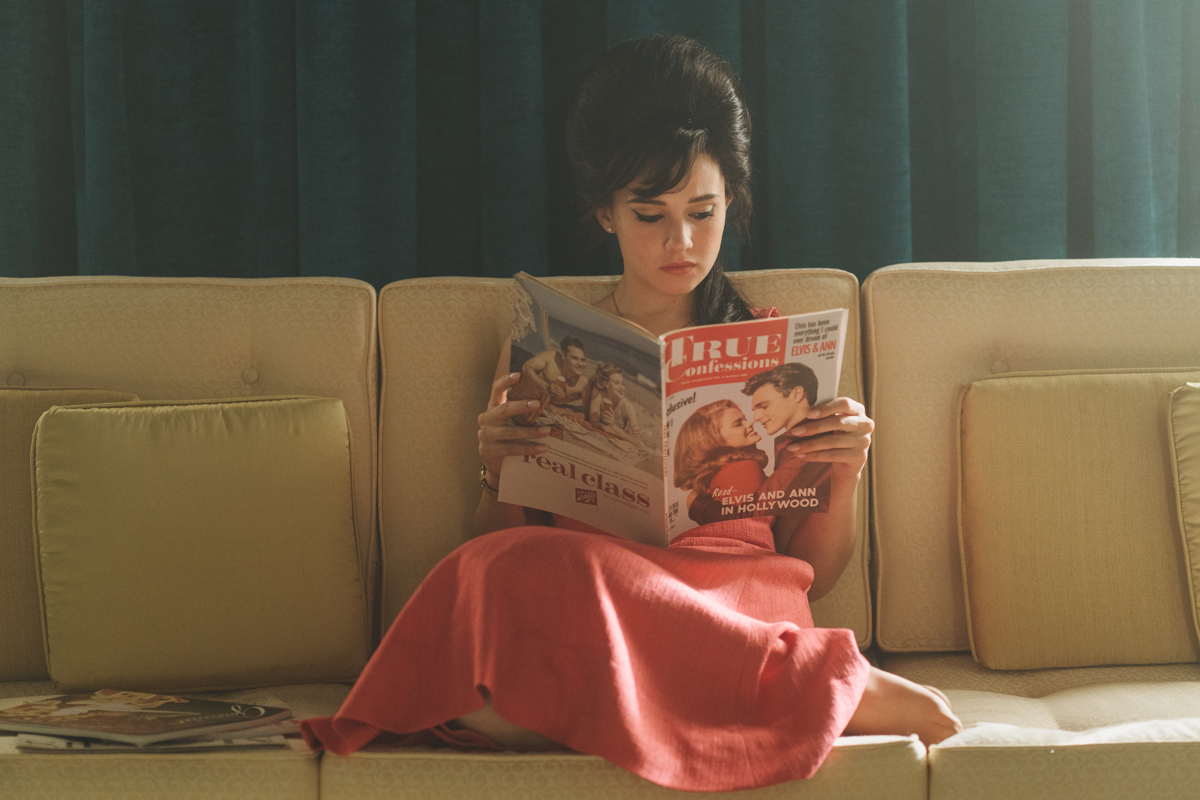
Cailee Spaeny as Priscilla in Priscilla. Courtesy A24. Photo: Sabrina Lantos.
Priscilla, written and directed by Sofia Coppola, now playing in theaters in New York and Los Angeles, opening nationwide November 3, 2023
• • •
A two-story house in the Michigan suburbs, a hotel in Tokyo, the palace of Versailles, a boarding school in a Greek-revival mansion in the Civil War South: these residences, of varying degrees of opulence and permanence, seal up and isolate the girls and young women who are Sofia Coppola’s regular protagonists. Played by Cailee Spaeny, the latest to be immured is Priscilla Presley, still a high schooler when she moves to Graceland in 1963 to be with Elvis (Jacob Elordi), whom she would marry four years later and divorce in 1973. Adapting Presley’s 1985 memoir, Elvis and Me, Coppola has created a watery biopic, a threadbare project devoid of the qualities that have distinguished even the weaker of the writer-director’s previous films: a keen sense of mood and milieu, exacting attention to detail, an unerring instinct for casting.
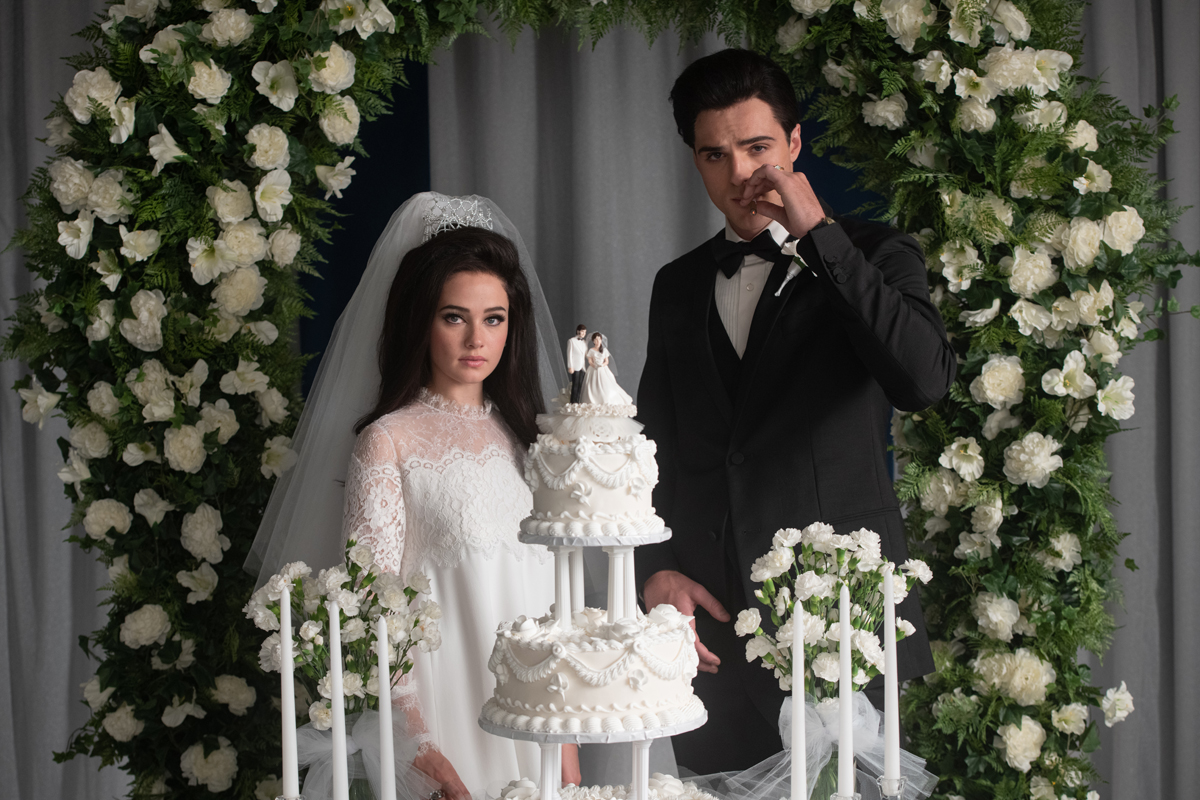
Cailee Spaeny as Priscilla and Jacob Elordi as Elvis in Priscilla. Courtesy A24. Photo: Philippe Le Sourd.
I have not read Presley’s book, published seven years after Elvis’s death (she serves as an executive producer of Coppola’s film). But the Priscilla depicted here, portrayed from the age of fourteen to twenty-six, is largely inert and docile, seemingly a supporting player in her own life story, one who reacts rather than initiates. That uxorial compliance, of course, was typical of the era; more specifically, it would be unsurprising in a union with the world’s most famous entertainer, a decade Priscilla’s senior. Yet even Olivia DeJonge, who played Priscilla in Baz Luhrmann’s Elvis, his boisterous account of the King from last year, managed, if only in one scene in the little screen time allotted her, to give the character a pulse—blips of vitality barely evidenced in the new film. Moreover, Coppola, who so strikingly illuminated the mysteries of girlhood in The Virgin Suicides (1999), cannot vivify any aspect of Priscilla’s interiority—a task admittedly made more difficult by Spaeny’s narrow range.
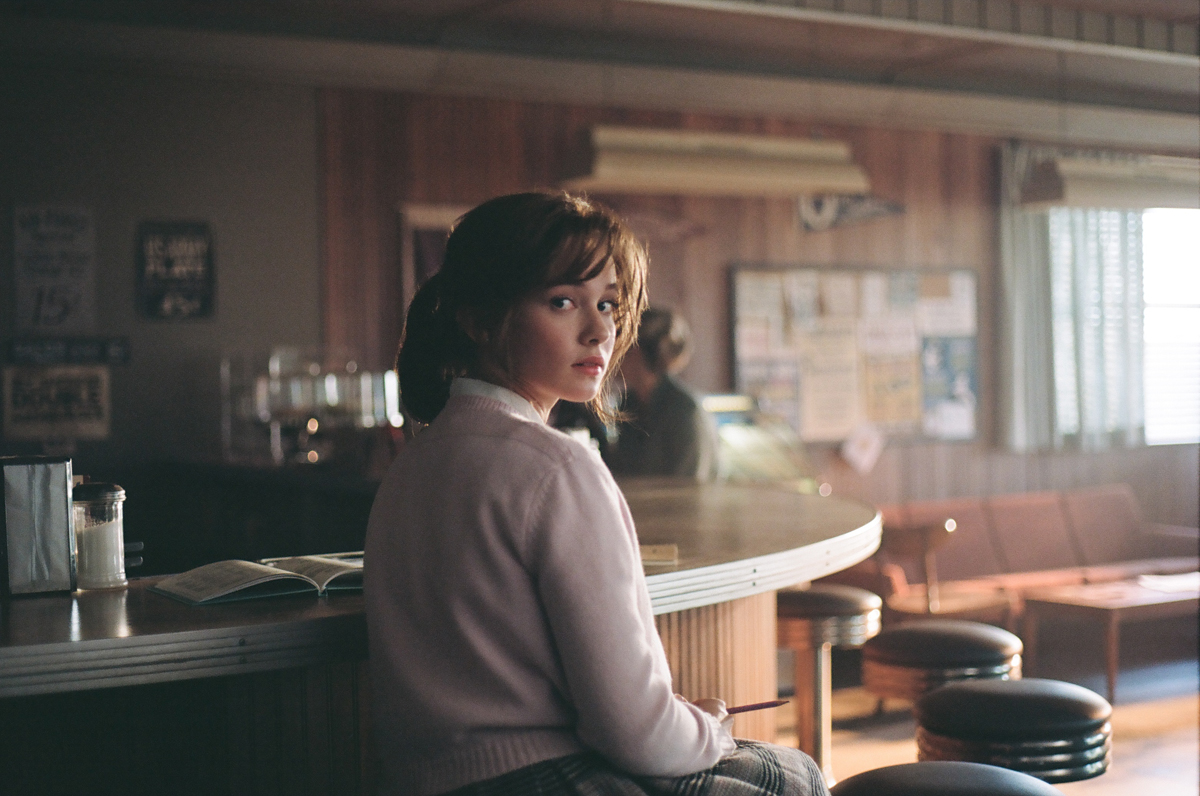
Cailee Spaeny as Priscilla in Priscilla. Courtesy A24. Photo: Sabrina Lantos.
The best I can say about the actress, twenty-five when the movie was shot, is that she quite alarmingly looks like a teenager, giving at least some kind of verisimilitude to this otherwise gauzy movie’s first half, devoted to Priscilla and Elvis’s long courtship—years that coincide with her adolescence. She’s a ninth grader when they first meet, not too far outside Frankfurt, where her Air Force officer stepfather has been stationed after a stint in Texas and where Elvis is completing his military service with the Army. A pal (or procurer?) of the idol’s approaches the girl, wearing a pale-pink cardigan and sipping a Coke while doing her French homework at a malt shop on base: Would she like to come to a party that Elvis is hosting at his off-barracks digs?
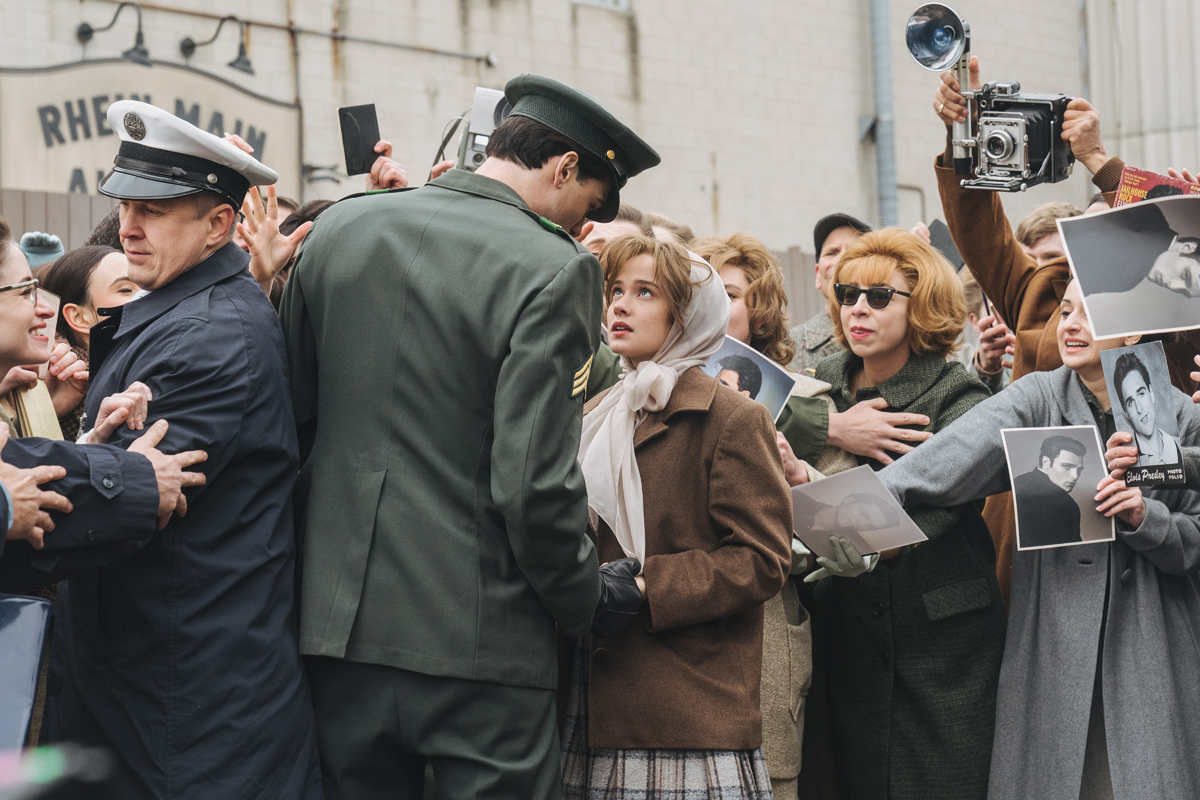
Jacob Elordi as Elvis and Cailee Spaeny as Priscilla in Priscilla. Courtesy A24. Photo: Sabrina Lantos.
After some feeble pro-forma pushback from her parents, who will acquiesce ever more quickly with each new Elvis-related request, Priscilla arrives at the King’s West German flat to find the twenty-four-year-old superstar still grieving for his dead mama and homesick for the States; he finds it easy to turn to this teenage compatriot for emotional succor. His heavy heart notwithstanding, he takes his hosting duties seriously, entertaining his guests at the piano with a verse or two from “Whole Lotta of Shakin’ Going On,” unsmoothly lip-synched by Elordi (Elvis Presley Enterprises denied Coppola the usage of any of the King’s songs, thus this Jerry Lee Lewis hit). While this number, fortunately, is the actor’s sole instance of singing ventriloquism, we are spared no aural respite from the Australian Elordi’s difficulty with a Southern drawl, the vowels proving especially nettlesome.
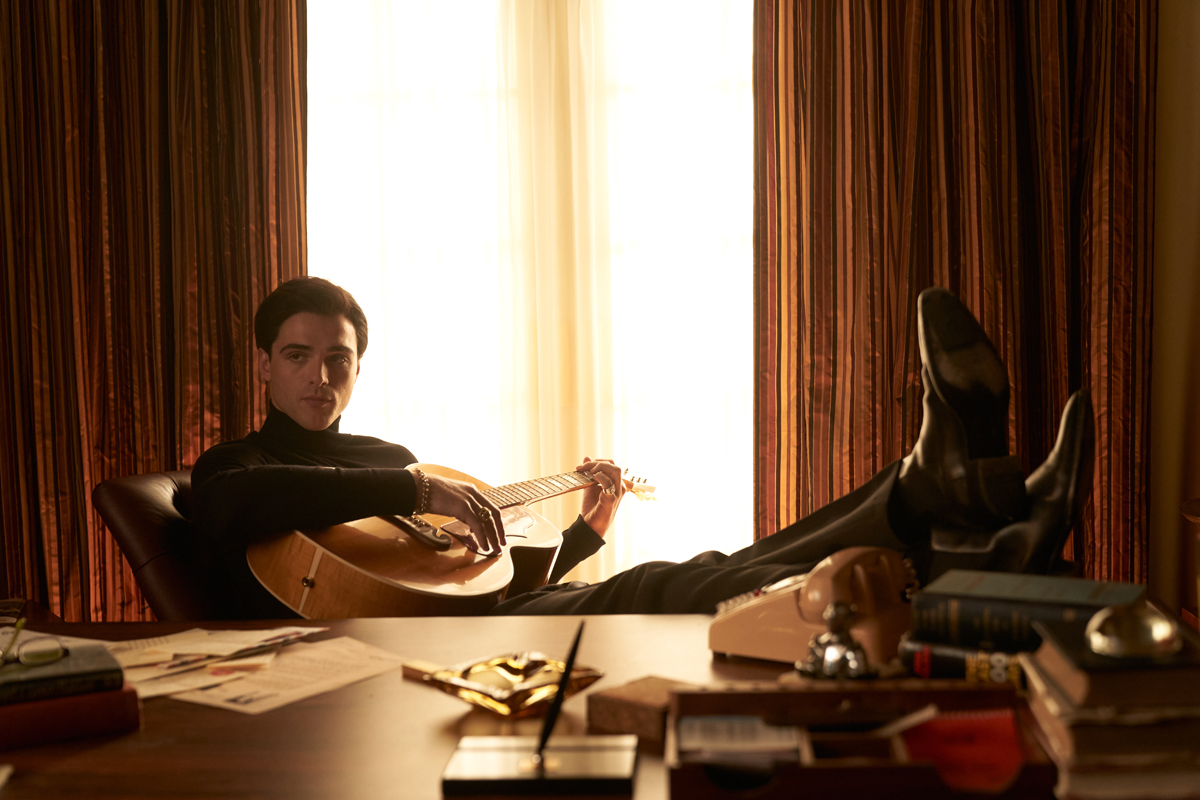
Jacob Elordi as Elvis in Priscilla. Courtesy A24. Photo: Sabrina Lantos.
Despite these liabilities, the actor, best known for playing the swaggering, vicious stud on HBO’s dissolute teen drama Euphoria, can still hold our attention when he’s in the frame. He possesses what his costar does not: charisma, that magical aura abundantly displayed by many of the actresses, some quite young, in Coppola’s earlier features (Kirsten Dunst in 1999’s The Virgin Suicides, Elle Fanning in 2010’s Somewhere, Emma Watson in 2013’s The Bling Ring, to name just a few). Present in almost every scene, Spaeny is given little to do besides apply nail polish and extravagant eye maquillage and wait for Elvis to call or come home from the set of Viva Las Vegas or Speedway or any other of the infinite number of movies he made in the ’60s. The restless spectator also eagerly awaits his return.
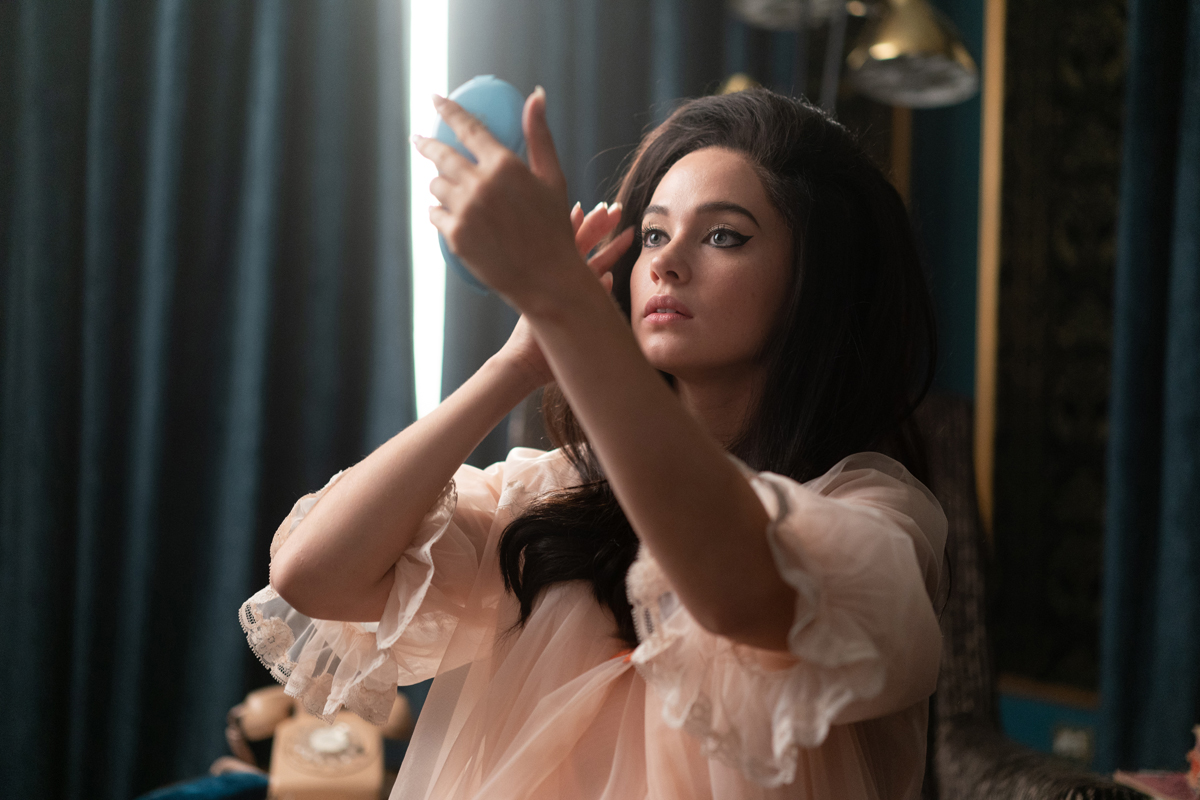
Cailee Spaeny as Priscilla in Priscilla. Courtesy A24. Photo: Sabrina Lantos.
In the first blush of their romance, while they are both still in Deutschland, Elvis takes Priscilla to see John Huston’s arch caper from 1953, Beat the Devil, a film he loves so much that he recites star Humphrey Bogart’s lines. He tells her of his admiration for Marlon Brando, of his hope to study at the Actors Studio. Does Priscilla have a favorite movie, performer, book, song, animal, food, color, subject in school? Priscilla does not tell us; of her presumed passions, Coppola’s film shows only that she stuck with French in her sophomore and junior years, apparently never advancing beyond the present-tense conjugation of être.
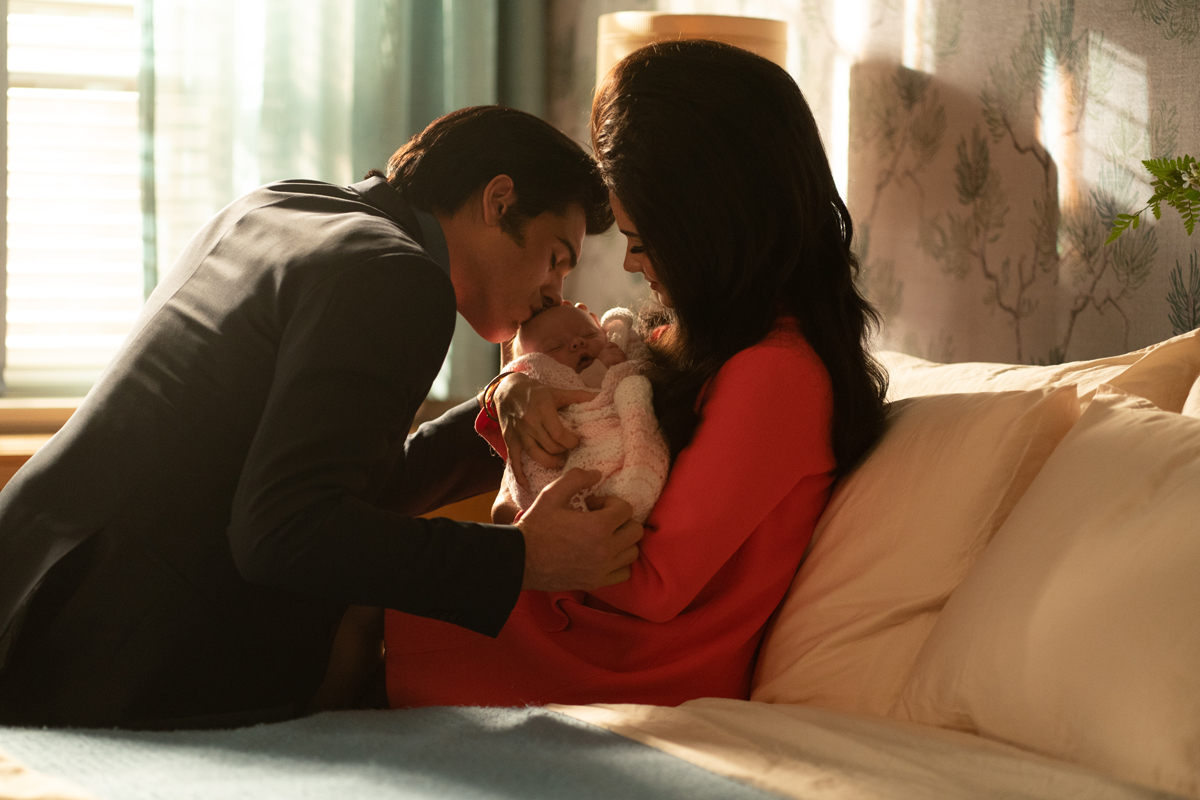
Jacob Elordi as Elvis and Cailee Spaeny as Priscilla in Priscilla. Courtesy A24. Photo: Sabrina Lantos.
Once she is permanently installed at Graceland, Priscilla’s slim repertoire of activities expands to taking the uppers and downers that her boyfriend, long addicted to the substances, has introduced her to. Sometime in the mid-’60s, Elvis—swayed by a hairdresser/guru about the benefits of psychedelics—convinces Priscilla that they should try LSD. Their acid trip—shoddily rendered as a few seconds of magenta-hued double exposure—marks the film’s nadir and a first for Coppola: never before has she made a movie that looks this bad, or, more accurately, this generic. A trip to Vegas the couple takes is signaled by obviously stock footage of Sin City. Most of the scenes in Graceland, infamous for its outlandish décor, are confined to the lovers’ bed, a dull expanse of foam and duvet (which sees little action, since Elvis, carnally occupied with his movie costars and others, refuses to have sex until they’re married and is rarely in the mood after Priscilla gives birth to their daughter). To return to Priscilla’s French-101 verb: What did Coppola want this film to be?
Melissa Anderson is the film editor of 4Columns and the author of a monograph on David Lynch’s Inland Empire from Fireflies Press.